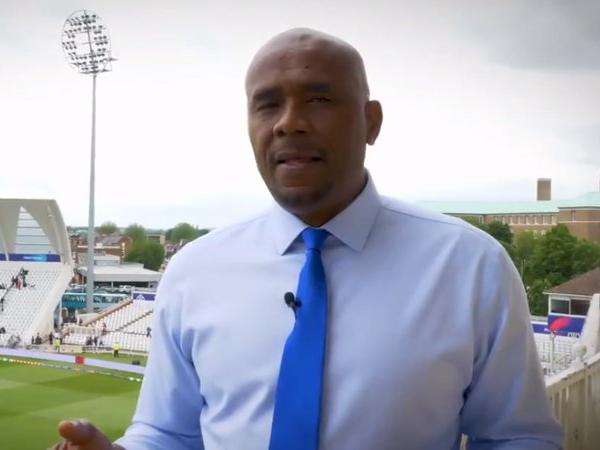
Treasury Secretary
Janet Yellen
told Congress that the Treasury would be unable to pay all of the government’s bills if lawmakers don’t raise the federal borrowing limit by Oct. 18.
“At that point, we expect Treasury would be left with very limited resources that would be depleted quickly. It is uncertain whether we could continue to meet all the nation’s commitments after that date,” she said in a letter to congressional leaders on Tuesday morning.
Senate Majority Leader
Chuck Schumer
(D., N.Y.) said he would attempt later Tuesday to pass an increase to the debt limit with just a majority vote, allowing Democrats to raise it on their own if no Republicans object. But at least one Republican senator has already said that he would object, potentially blocking the Senate from using the tactic.
Senate Republicans on Monday blocked a Democratic bill that would both fund the government and raise the borrowing limit, escalating a political showdown over the government’s finances just days before it runs out of money.
Senate Democrats sought to pass a House-approved stopgap measure that funds the government through Dec. 3, 2021, and suspends the debt limit through Dec. 16, 2022. They are racing to send the legislation to President Biden’s desk before the government’s current funding expires at 12:01 a.m. Oct. 1, one of several big-ticket topics that lawmakers are juggling this week.
The failure of the procedural vote Monday could prompt Democrats to decouple the short-term spending measure and the debt-limit vote, to avoid the risk of a government shutdown at the end of the week. The letter from Ms. Yellen makes clear that lawmakers would only have 18 days after that to approve a debt-limit suspension before the Treasury could begin to miss payments on its obligations, triggering a default that could send markets into a tailspin.
The Treasury has been using emergency measures to conserve cash since Aug. 1, when the debt limit was reinstated after a two-year suspension. Ms. Yellen has warned lawmakers for months that the government could exhaust those measures this fall, and said earlier this month that the date could come as early as October. Tuesday’s letter is the first time she has provided a specific estimate for the so-called X-date.
The U.S. faces an estimated $20 billion in Social Security payments on Oct. 20 along with around $6 billion in individual tax refunds, according to forecasts by the Bipartisan Policy Center. It faces another $49 billion in payments through Oct. 29, and then an additional $80 billion in payments on Nov. 1, including $14 billion in interest on the federal debt.
Ms. Yellen restated a plea for lawmakers to agree to raise the debt limit, which doesn’t approve new spending but instead allows the government to pay bills it has already agreed to incur, in her testimony Tuesday before the Senate Banking Committee, where she appeared alongside Federal Reserve Chairman
Jerome Powell.
Photo:
Kevin Dietsch/Getty Images
Ms. Yellen said the U.S. “would likely face a financial crisis and economic recession” if the Treasury can’t repay bondholders as debts mature. “It is imperative that Congress swiftly addresses the debt limit. If it does not, America would default for the first time in history,” she said.
Senate Republicans have lined up against the debt-limit increase, saying that Democrats, as the party in power, should raise the ceiling themselves. Democrats have emphasized that lifting the debt limit is a shared responsibility of both parties, and said votes to lift the debt ceiling during the Trump administration were bipartisan.
Yields on the 10-year Treasury note surged Tuesday morning to 1.545%, their highest level in three months.
The debt-limit standoff is already rippling through short-term money markets, as investors demand more yield to hold Treasurys with the greatest risk of a delayed payment. Usually, investors demand higher yields for Treasurys with longer maturities to compensate for the risk that the Fed could raise interest rates or that inflation would accelerate, reducing the value of those bonds.
But in recent weeks, short-term Treasury bills that mature in mid-October through mid-November have offered higher yields than those maturing a few months later, a sign of how some investors are shunning certain securities to guard against a potential default.
Mr. Powell during Tuesday’s hearing urged lawmakers to raise the debt limit without delay. He said a crisis-management playbook Fed officials put together during a similar standoff in 2013, which some analysts believe could guide the central bank’s response this fall if the federal government can’t pay all its bills, shouldn’t lead lawmakers to conclude the Fed could fully offset a financial catastrophe.
The Fed didn’t publicize those preparations because it didn’t want to create a “misunderstanding on the part of the public that we could actually shield the financial markets, and the economy, and the American people from the consequences of default,” he said Tuesday.
Separately, Ms. Yellen said the U.S. economy is in the middle of a “fragile but rapid recovery” from the recession caused by the coronavirus pandemic in March 2020. Ms. Yellen said despite a recent slowdown in hiring and consumer spending due to the Delta variant of the coronavirus, she said she still expected the labor market to return to full employment next year.
Policy makers have faced an unexpected burst of much stronger-than-anticipated inflation this year, which has complicated the outlook for interest rates over the coming years. The Fed last week indicated it was likely to begin reversing its pandemic stimulus policies at its next meeting, Nov. 2-3, by gradually reducing its purchases of $120 billion a month in government securities and mortgage bonds.
Mr. Powell said at Tuesday’s hearing that the surge in inflation this year, driven largely by supply-chain bottlenecks and other challenges related to reopening the economy, has been larger and more enduring than anticipated. Inflation has surged to more than 4% in recent months, using the Fed’s preferred gauge, but Mr. Powell said he believed prices would eventually return to the central bank’s 2% goal.
When asked if inflation was broader and more structural than earlier in the year, Mr. Powell said, “I think it’s fair to say that it is.” The supply-chain bottlenecks that have been driving prices higher “have not only not gotten better—they’ve actually gotten worse,” he said. Mr. Powell pointed to shortages of semiconductor chips that have hampered the production of new cars and a growing backlog of container ships “with anchors down outside of Los Angeles.”
Write to Nick Timiraos at nick.timiraos@wsj.com and Kate Davidson at kate.davidson@wsj.com
Copyright ©2021 Dow Jones & Company, Inc. All Rights Reserved. 87990cbe856818d5eddac44c7b1cdeb8
24World Media does not take any responsibility of the information you see on this page. The content this page contains is from independent third-party content provider. If you have any concerns regarding the content, please free to write us here: contact@24worldmedia.com

Marnus Labuschagne Caught Off-Guard By ODI Captain Call After Steve Smith Snub

Everyone Is Looking Forward To It, The Standard Will Be Very High – Jacques Kallis On CSA’s SA20

Danushka Gunathilaka Granted Bail On Sexual Assault Charges

Ramiz Raja Sends Legal Notice To Kamran Akmal For Defamatory, False Claims Against The Board

Harbhajan Singh Reckons Mumbai Indians Should Release Kieron Pollard Ahead Of The IPL Auction 2023

Ian Bishop Praises Sam Curran For His Performances On Bouncy Australian Tracks

Why Choose A Career In Child Psychology?